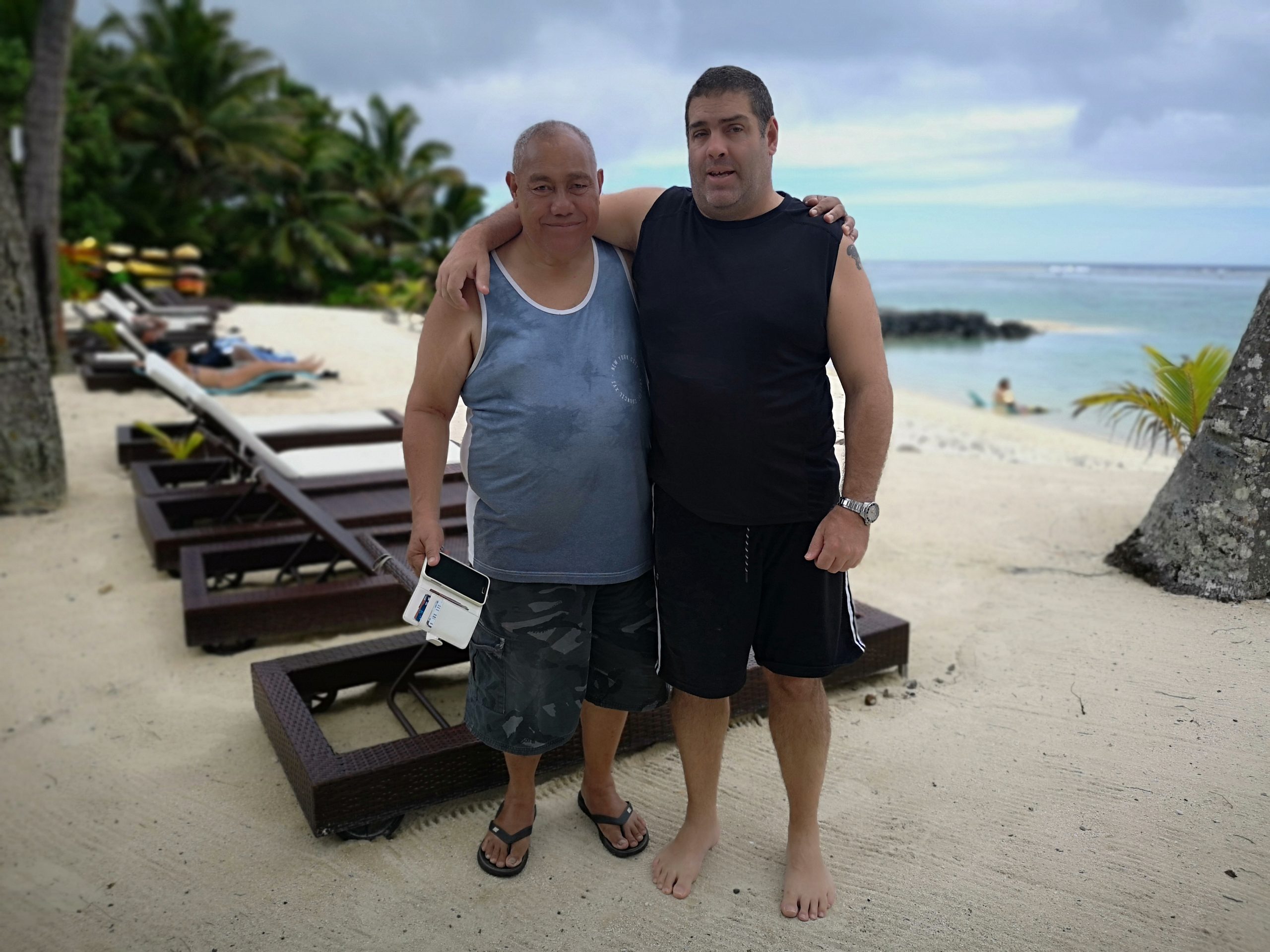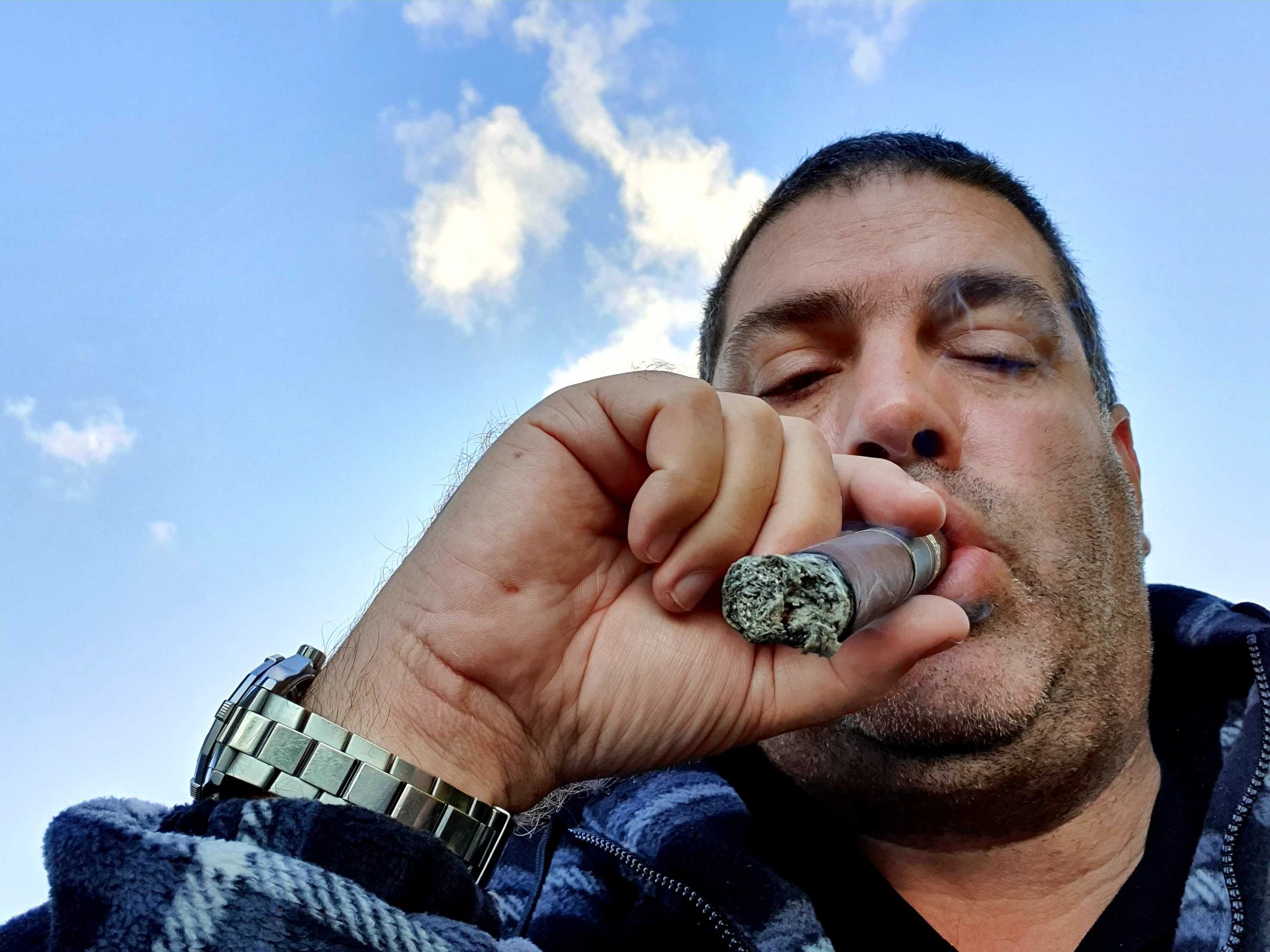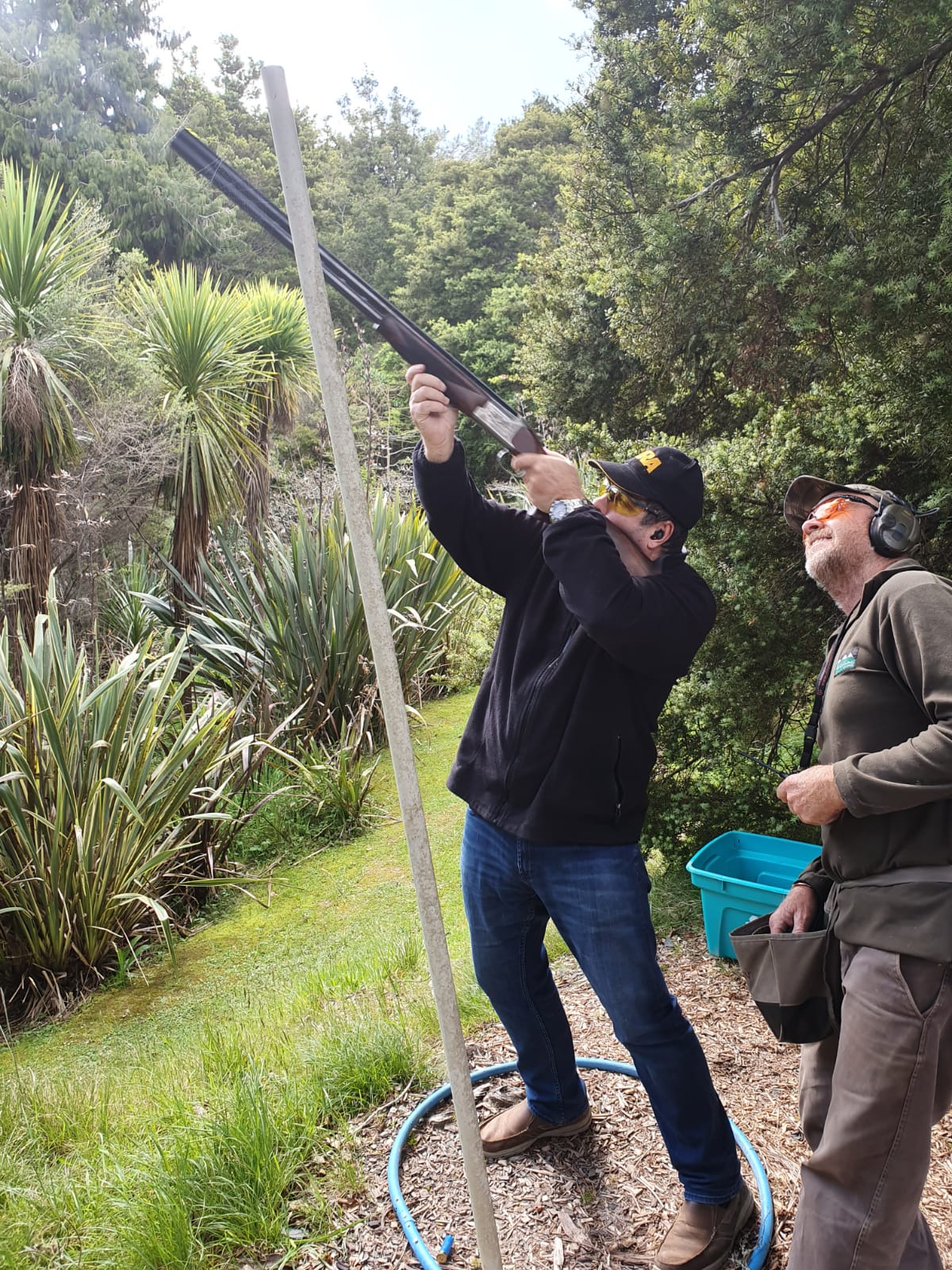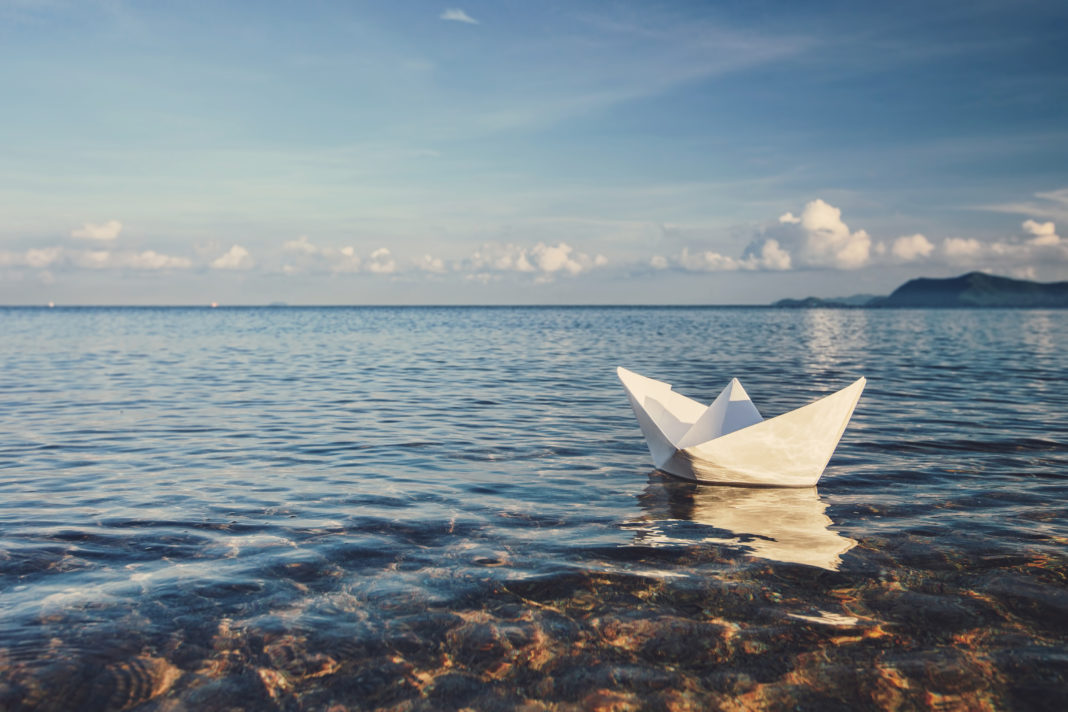On the morning of October 28 2018, just four days from my 50th birthday, I awoke to find my life changed dramatically. As I travelled to hospital by ambulance I felt confused, sad, despondent and very, very angry. I didn’t know what the future would deliver anymore, my whole life was in tatters as a result of a stroke.
When you suffer a medical event on a scale like that, there’s very little under your control. You watch the medical professionals almost from afar as they work to save your life.
What was also disconcerting was the media hounding to know what was going on, even as you lay in the hospital emergency room. You wondered how someone even knew, and then decided that breaching your privacy was clearly more important than wondering if you were OK. Both times I ended up in North Shore Hospital over that week ended in media knowing almost as soon as I arrived. That was part of the reason I transferred to Auckland Hospital under an assumed name. That, and because that is where the best stroke specialists are.

After a week in hospital undergoing various tests including four CT Scans, two MRIs and a TOE (I had the TOE on the day of my 50th birthday), I woke up from the fentanyl they gave me to find I had visitors for my birthday. They had brought in whitebait fritters and black pudding. I don’t know if it was the fentanyl but those things tasted absolutely divine that day.
The hospital decided on a final test to see how bad the nerve damage was in my right arm. It was a trial and I agreed to participate in it. The trial is designed to provide a clinical test to predict upper limb motor outcomes for individual patients soon after a stroke. For example, knowing the level of predicted motor recovery could help with discharge planning and realistic goal setting for clinicians and patients. Clinicians often find it difficult to accurately predict functional outcomes, especially for patients with moderate to severe initial impairment. Currently, no single clinical measure or neurological biomarker is able to accurately predict motor recovery or outcome for all patients. It is called PREP2.
Over the week I had regained the use of my right leg and although I was very weak and my gait was significantly affected I could at least get about. The final test involved an electrical coil held above the area of the stroke and electric pulses of varying strength being passed through my skull. On my arm were electrodes to measure electrical response. Every single test produced a flat line result. There was no response at all. The specialists and physiotherapists all declared that I would never use my arm again. It was essentially a dead piece of meat attached to my body.
That is when the shock of what happened really set in. I wouldn’t be able to type again, wouldn’t be able to use a knife, shoot, hunt, lift anything, swim, paddle board, kayak…in short absolutely everything I normally enjoyed was gone forever.
What was amazing during that week however was experiencing the best of human nature and the absolute worst. When you have major medical events like that you find out who your real friends are, and who are good time friends only. You also find out who the cowards are and those who wish evil upon you. What also becomes apparent are those whom you can rely upon and those you can’t.
The most astonishing visit I had was from the lawyer who had made such a balls-up of my case that the judge threw out my defences. He was pretty quick off the mark in bailing out rocking up to Auckland Hospital to get me to sign documents to get him out of acting any further. He cut and run, and still had the temerity to bill me a considerable five-figure sum. I never heard from David Beard again, and still have not heard from him since he danced out of Ward 42 with a piece of paper that got him off the hook. Contrast that venal and self-absorbed behaviour with that of Brian Henry, who was more concerned about my health than anything else. Where others ran, Brian stepped up and took over.
I had so much to deal with in the aftermath of the stroke and that was just health-wise. At the same time life carries on around you without a care to your precarious health situation. Two sets of plaintiffs accused me of faking my stroke. One set even hired a neurologist to produce a diagnosis without even seeing me or reading my notes or even talking to my specialists. Unsurprisingly this doctor with amazing powers of crystal ball gazing came to the conclusion that I was perfectly alright to participate fully in court processes. Contrary to that medical genius I had a plethora of experts who actually were treating me saying that I risked another major stroke if I continued to fight.
Eventually, when it was apparent that, despite my serious health issues the various people pursuing me weren’t going to relent, and were, in fact, seeking to escalate issues, I came to the conclusion that the best course of action to remove myself from the intense stress and the resulting negative effects on my health was to declare myself bankrupt. That was the only way I could remove the stress from my life and start to recover. I acted to save my life.
I just had to let it go.
After hearing the diagnosis regarding right side injuries I became depressed. I wondered what the future entailed but that was when my stubbornness kicked in. I told the specialists they were wrong, that their tests were wrong and that I would recover, that my arm would work again. I saw their looks, I saw them shake their heads, I heard them whisper to their interns. I left the hospital and immediately focused on my recovery. Again, it was Brian Henry who stepped in, suggesting a physio who has had amazing results for other patients he knew of. I started attending Peak Pilates and seeing Rebecca Taylor seven days a week. I had resolved to only focus on my recovery and nothing else.
I just had to let it all go.
My life had to change. Stress, constant combat, fighting and negativity was killing me. By only focusing on physiotherapy I could begin to seek peace. Initially, I couldn’t do much at physio, but every day I forced myself to go and endure failure, over and over again, but slowly and surely I was improving.

In December I went to Rarotonga, not for a holiday but to see a man who would jump start my recovery. His name is Uani Katoa, a gentle giant of a man who heals with his hands. I had known Uani for many years and had helped him in the past but this time it was me who needed his help. I saw him every day for about two hours, where he massaged and worked on my arm, leg, shoulder, and back to get things moving. When I went up there I couldn’t walk properly, my arm was in a sling and I got exhausted just walking to the letterbox. I needed a wheelchair to board the aircraft. When I returned, the sling was gone, I walked up across the tarmac and up the stairs and walked off the plane at the other end. I was still very sick, but my arm was moving again. Before I left I couldn’t lift it above my head, now I could. This new movement allowed me to do more at physio which I continued.
I still go to physio every week, but slowly reduced from 5 days per week. This year it is only twice per week, but I now have other activities for other days to assist my recovery. But more on that later.
In February last year, I also started seeing Gilly Davy at Connect Neuro Physiotherapy. Gilly is one of New Zealand’s leading neurological physio’s. In 2015 Gilly was awarded the Australian Physiotherapy Association contribution to Neurological Physiotherapy award. The combination of her work complemented the amazing Rebecca Taylor. The daily Pilates has strengthened my body, restored movement and some strength. I still have constant pain, mostly from a frozen shoulder, and fingers that seize up from inactivity, but I am able to manage that well now. It is still a long road to full recovery and that is just the physical aspect.
The stroke has also impacted in other ways. I was a blunt person beforehand, now I’m even blunter. I normally have said things that others were too afraid to say; that is still the case but even more so. When I had my stroke I was a very angry person. It was Uani who highlighted this to me. He told me the anger would kill me. He was right. I have had to learn to relax. It was forced on me but I have had to do it. That means that I have to have a nap every afternoon as well. To miss that means I suffer, so in essence, I’ve become Spanish, having a siesta each afternoon. That is one way to assist recovery but also slows me down.

Another way I relax is by taking up cigar smoking and whisky drinking. Before my stroke, I didn’t drink and didn’t smoke. I didn’t know how to relax or know how to take time out. I hadn’t had a holiday where I simply did nothing for more than 20 years. I had nearly worked myself to death. That had to change. So, I took up cigar smoking. Why? Well, because in order to smoke a cigar requires at least an hour of your time doing nothing but sitting there savouring silence and relaxing. Cigar smoking gives me quiet contemplation.
There are also other health benefits. Nicotine improves cognitive functions by modulating neuroplasticity and cortical excitability in nonsmoking subjects. Recent studies show that the positive effect of nicotine on cognition might at least partially be caused by a focusing effect of nicotine on neuroplasticity. So cigar smoking, which doesn’t involve sucking smoke into your lungs, but delivers lots of nicotine, actually has been helping with stroke recovery as well as forcing me to take time out just for myself. Of course, this is complemented by enjoying a fine single malt whisky.
This was all part of letting it all go.
Part of that meant no longer commenting on the website, not reading it or anything other than fiction. Staying away from the fray. As time went on I started taking an interest in things political again, but I’ve found that the enforced break and distance from the fray has meant I now have a different perspective on things political. I’ve seen for myself the dangers of being hyperpartisan. I’ve noticed how we seem to talk past each other, that despite MMP we’ve become more polarised; the very thing that MMP was meant to eliminate. That has been part of my journey too. To slow down, take time to understand, and recognise that sometimes other people have good ideas.
I still can’t easily type as my right hand is the last part to come right. So, when I start writing or working again it is likely to be via podcasts. I’m still some way off returning to active work as my memory is still badly affected and simple things like names still elude me. That said, things are improving but what I initially thought would be a rapid recovery isn’t. It has taken a single-minded focus to get this far.

Part of my recovery has included taking a more active part in shotgun shooting. It was Gilly Davy who insisted that I get back shooting. It allows me to participate in my chosen sports near to home and is helping with the physical rehabilitation. I picked up a gun again in October 2019, a year after my stroke, and have been going once a week shooting sporting clays. One day while shooting, the guy I was seeing one on one asked if I’d considered competing. My muscle memory was coming back and my shooting was well over 90%. I looked into it and found that I met all the medical requirements for Paratrap shooting in the Sport Class SG-U PT3 classification. This covers athletes with good balance and trunk function, competing from a standing position. Athletes have an impairment in the non-shooting arm. I now have my classification approved and am starting a training regime and will soon enter competitions. I was once a top pistol shooter, I will become a top shotgun competitor. This is part of getting a better life balance for myself.
That better life balance will also come from doing a lot more hunting as my strength and fitness increases. By healing the body, I will heal the mind.
Stroke recovery is tedious and difficult. I’ve come a long way but the only way I was able to do it was by letting everything else go. Living is far more important to me than being right.
I just had to let it go.
You may have noticed that I’ve said that a lot. Some of you may have realised that it comes from the John Lennon song “Watching the Wheels”. The song speaks to me. It resonates. Lennon wrote that after stopping all work and focusing on his family. Sadly he was gunned down and killed just weeks after its release:
People say I'm crazy Doing what I'm doing
Well, they give me all kinds of warnings
To save me from ruin
When I say that I'm okay, well they look at me kinda strange
"Surely, you're not happy now, you no longer play the game"
People say I'm lazy
Dreaming my life away
Well they give me all kinds of advice
Designed to enlighten me
When I tell them that I'm doing fine watching shadows on the wall
"Don't you miss the big time boy, you're no longer on the ball?"
I'm just sitting here watching the wheels go round and round
I really love to watch them roll
No longer riding on the merry-go-round
I just had to let it go
Ah, people ask me questions
Lost in confusion
Well, I tell them there's no problem
Only solutions
Well, they shake their heads and they look at me, as if I've lost my mind
I tell them there's no hurry, I'm just sitting here doing time
I'm just sitting here watching the wheels go round and round
I really love to watch them roll
No longer riding on the merry-go-round
I just had to let it go
I just had to let it go
I just had to let it go
And that’s me, just sitting here watching the wheels go round and round. The stroke changed everything, but actually, in retrospect, it has been for the better. I think it has enhanced me. I’m doing fine watching shadows on the wall…and I’ll be back soon.
If you enjoyed this BFD article please consider sharing it with your friends.

